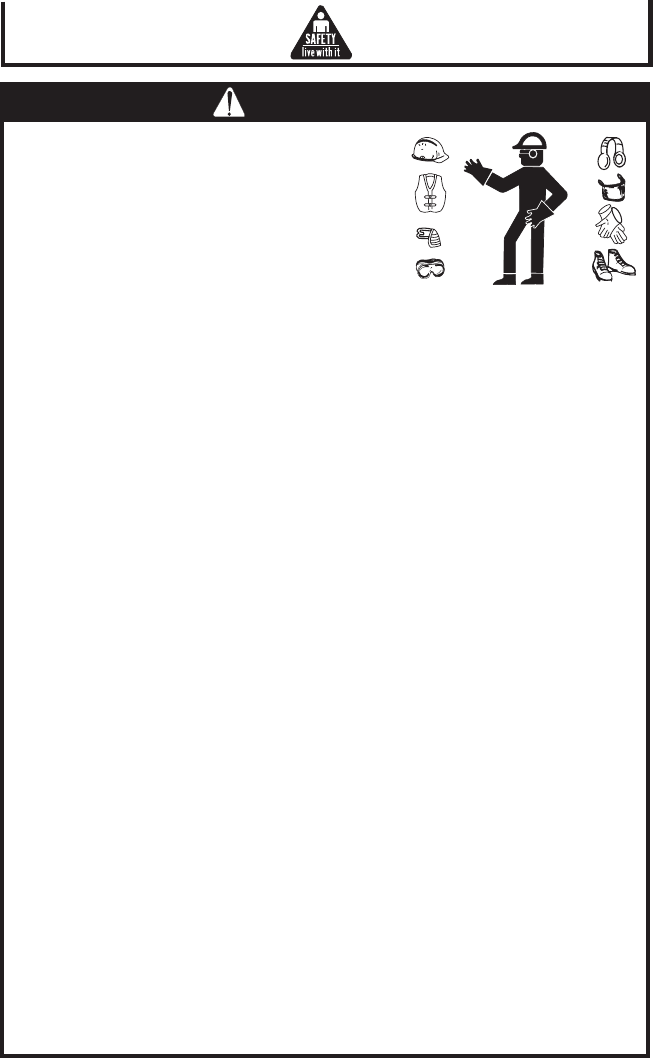
Straight Line Single Piston Sander Operator's Manual 5
ALWAYS WEAR APPROVED EYE PROTECTION
Impact resistant eye protection should meet or
exceed the standards as set forth in the United
States ANSI Z87.1, Occupational and Educational
Eye and Face Protection. Look for the marking
Z87.1 on your eye protection to insure that it is an
approved style. For further information, ANSI Z87.1,
Occupational and Educational Eye and Face
Protection, is available from the American National
Standards Institute, Inc., 11 West 42nd Street, New
York, NY 10036.
HEARING PROTECTION IS RECOMMENDED
Hearing protection should be used when the noise
level exposure equals or exceeds an 8 hour time-
weighted average sound level of 85 dBA. Process
noise, reflective surfaces, other tools being operated
nearby, all add to the noise level present in your
work area. If you are unable to determine your noise
level exposure, we recommend the use of hearing
protection.
WEAR RESPIRATORY PROTECTION
It is advisable, when using this tool for extended
periods of time, to wear a protective mask. This will
help prevent the inhalation of the fine dust produced
while using this tool. Prolonged breathing of dust
particles may lead to future respiratory problems.
Some dust created by power sanding, sawing,
grinding, drilling and other construction activities
contain chemicals known to cause cancer, birth
defects or reproductive harm. Some examples of
these chemicals are:
• Lead from lead-base paints
• Crystalline Silica from bricks, cement and other
masonry products.
• Arsenic and Chromium from chemically treated
lumber.
Your risk from these exposures varies, depending
on how often you do this type of work. To reduce
your exposure to these chemicals, work in a well
ventilated area and work with approved safety
equipment such as those dust masks that are
specially designed to filter out microscopic particles.
WARNING


















